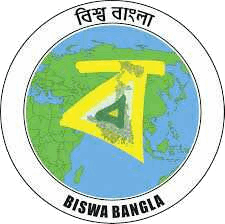The Tribal Development Department was created in November 2013 with a view to give focused attention to Social, Educational, Economic and Cultural issues and problems of Scheduled Tribes in West Bengal. As per census 2011, West Bengal has 52.96 lakh ST population consisting 5.8% of the entire population of the State.
The Tribal Development Department is assisted by Backward Classes Welfare & Tribal Development Directorate (BCW & TD Dte.), 2 (two) Corporations viz., (i) West Bengal Scheduled Castes, Scheduled Tribes and OBC Development and Finance Corporation and (ii) West Bengal Tribal Development Co-operative Corporation Ltd. and the Cultural Research Institute.
The Department is engaged in various development and welfare activities for addressing the needs and issues concerning the Scheduled Tribes of the State. The Reservation Wing under Tribal Development Department looks after the implementation of reservation policy and other related issues.
State Government has constituted Tribal Development Department through Notification No. 866 Home dated the 28" November, 2013 with a view to address specific issues related to Welfare of Tribal Communities of the State in a more concerted and holistic manner. Tribal Development Department has the mandate for:-
(1) Acting upon various rights and safeguards of the Tribal Communities as provided in the Constitution of India.
(2) Promotion, enforcement and implementation of various Acts & Rules pertaining to protection of rights, safeguards of the Tribal Communities.
(3) Providing necessary inputs for preparation of State TSS (Tribal Sub Scheme).
(4) Advocacy for rational allocation of resources to narrow down the gaps in development indicators for the Tribal Communities through State Plan.
(5) Identifying critical gaps in Tribal Development, preparation of plan and its implementation accordingly under SCA to TSS & Article 275(1) of the Constitution of India.
(6) Preparation of plan and its implementation for PVTGS (Particularly vulnerable Tribal Groups).
(7) Ethnographic study for identification of new communities.
(8) Educate Government officials, activists, community members and people at large on various aspects of Tribal Development.
(9) Promotion and preservation of cultures of ethnic groups.


